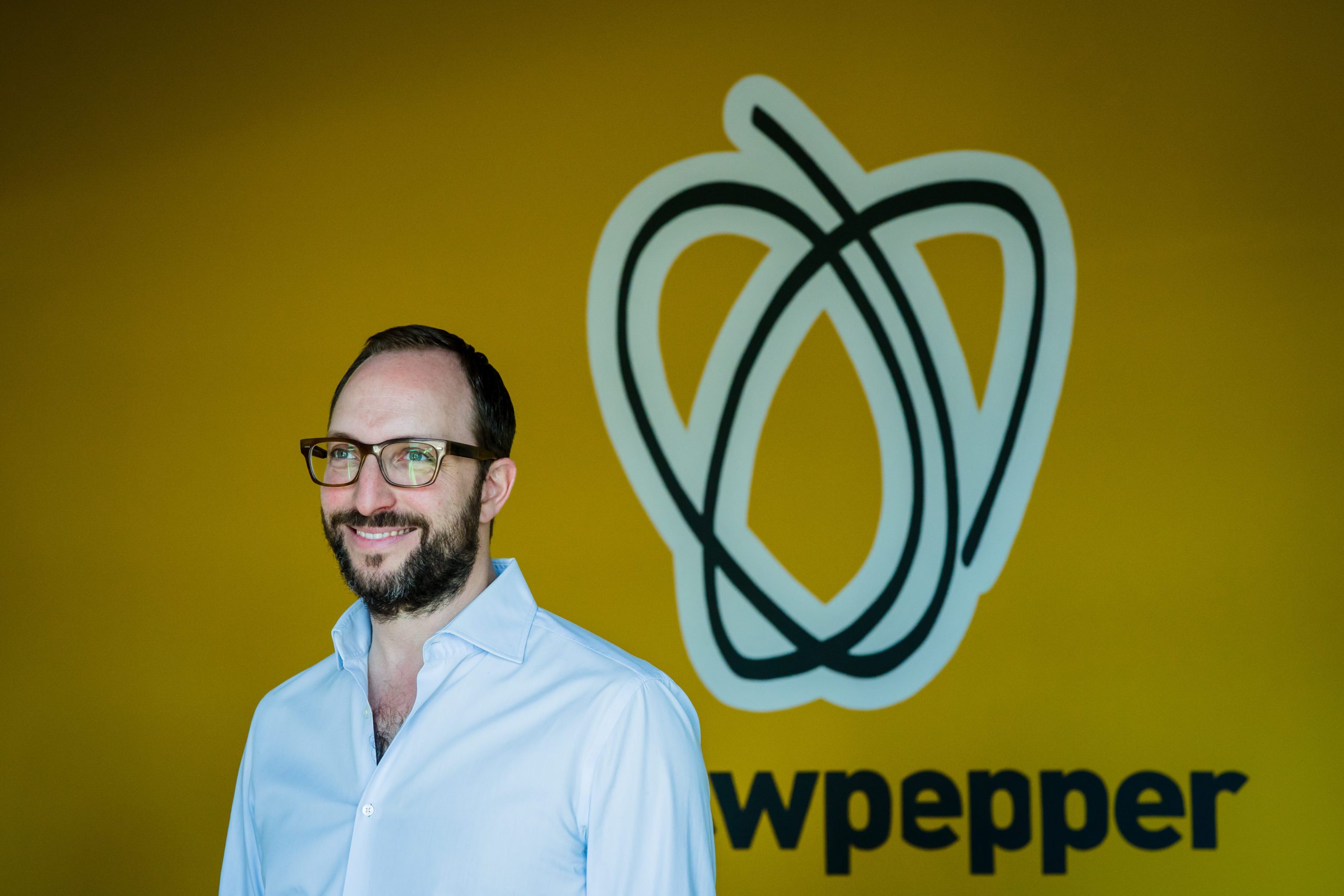Visa is acquiring financial-technology pioneer YellowPepper.
The global payments giant announced Tuesday evening that it has agreed to acquire Miami-based YellowPepper, whose proprietary technology supports leading financial institutions in Latin America and the Caribbean.
The YellowPepper team will continue to operate as an independent company as an agnostic provider of financial solutions under Visa, with CEO Serge Elkiner continuing at the helm in Miami. The transaction is expected to close in the next several weeks. Terms of the deal were not disclosed.
Founded in 2004 by the Belgian-born Elkiner, the venture-backed YellowPepper pioneered mobile banking in Latin America before turning its focus to digital payments. Elkiner moved the company’s headquarters from Boston to Miami, where offices of U.S. and Latin American financial institutions are based.
While fintech startups are often built to disrupt banks, YellowPepper partners with them and Latin America has always been its primary frontier. Its platform enables financial institutions to easily launch card and account agnostic real-time solutions, while providing services such as tokenization, identity validation and risk tools. The company operates in nine Latin American countries, where it serves 50 clients and 5 million monthly active users.
“YellowPepper’s unique technology platform is modern, interoperable, secure and scalable. Paired together, Visa and YellowPepper can deliver enhanced payment capabilities, providing profound value-added services for issuers, governments and processors in the region,” said Elkiner, in a statement.
Later in an interview with Refresh Miami, Elkiner added, “We become part of the Visa family. We’re going to continue to execute our strategy and hopefully grow bigger and faster.”
The YellowPepper-Visa courtship has been several years in the making. In May 2018, Visa entered into a strategic partnership with YellowPepper and led a $12.5 million Series D investment round in the company. YellowPepper has raised more than $51 million in venture capital, according to Crunchbase.
YellowPepper is a team of about 50 people now, including 8 in Miami. Elkiner said he is excited to collaborate with the Visa team in Latin America and South Florida, that numbers in the hundreds here.
Eduardo Coello, regional president for Visa Latin America and the Caribbean, said: “We are extremely excited about our acquisition of YellowPepper and how it enhances the growth trajectory of our business in Latin America and the Caribbean. The acquisition will accelerate Visa’s ability to create innovative and accessible digital payment solutions that empower consumers and businesses, allowing them to thrive socially and economically.”
YellowPepper will facilitate an easier integration to Visa Direct, Visa’s real-time push payments platform, Visa B2B Connect, Visa’s non-card-based payment cross-border B2B network, and value added services. “YellowPepper’s technology, which acts like a ‘universal adapter’, will be key to build on our ’network of networks’ strategy to become a single point of access for initiating any transaction type and enabling the secure movement of money,” Coello added.
Earlier this year, Visa and YellowPepper launched the first real-time platform of its kind in Peru by developing PLIN, a Zelle-like platform, with Scotiabank, BBVA, and Interbank, making managing and accepting cashless payments as easy as possible. PLIN has already picked up 2 million users in Peru — yes, during a pandemic — and YellowPepper is getting ready to launch PLIN in several more Latin American countries in the coming months. First up will likely be the Dominican Republic, Elkiner said.
Reflecting on YellowPepper’s 16-year journey, Elkiner said he is thrilled the team will be staying in Miami and will be part of the Visa family.
“To me, this is the beginning of an adventure. We strongly believe the future of the industry goes through new payment flows. We see a digitization of the world that started way before COVID but was accelerated with the COVID pandemic, when people needed more cashless and touchless transactions and technology is key here,” particularly in Latin America where much of the economy is based on cash transactions, Elkiner said. “We strongly believe 2021 will be a very good year.”
This story was updated. Follow @ndahlberg on Twitter and email her at [email protected]
- Tech and politics do mix at 2024 Miami Tech Summit, with eye on the future - April 18, 2024
- #MiamiTech Everything: Seen and heard in April - April 17, 2024
- 8+ things to know in #MiamiTech: Dapta and Siprocal raise funding, plus news from Jeff Bezos, MoonPay, Sustainable Skylines, Freebee & more - April 11, 2024





